Call for papers—Nanoenergy Communications: Themed Collection: Nanogenerators
Since the invention of the first nanogenerator by Wang’s group in 2005, several significant research areas have emerged, including piezoelectric nanogenerators, triboelectric nanogenerators, pyroelectric nanogenerators, self-powered sensors, piezotronics, piezo-phototronics, and tribotronics. Over the years, these technologies have progressed significantly. Nanogenerators are classified based on their energy sources, such as mechanical energy (harvested by piezoelectric and triboelectric nanogenerators) and thermal energy (harvested by pyroelectric and thermoelectric nanogenerators). Moreover, the integration of diverse functional materials has enabled the development of hybrid nanogenerators capable of simultaneously harvesting multiple types of energy. Through the implementation of diverse performance-enhancing strategies, nanogenerators are now capable of powering portable electronics and hold immense potential for transformative applications in the Internet of Things (IoT), artificial intelligence (AI), and human–machine interfaces (HMI).
This Nanoenergy Communications collection is guest edited by Zhong Lin Wang (Beijing Institute of Nanoenergy and Nanosystems, Chinese Academy of Sciences, China), Chenguo Hu (Chongqing University, China), Jeong Min Baik (Sungkyunkwan University, Republic of Korea), Ju-Hyuck Lee (Daegu Gyeongbuk Institute of Science & Technology, Republic of Korea), Hong-Joon Yoon (Gachon University, Republic of Korea) and Ya Yang (Beijing Institute of Nanoenergy and Nanosystems, Chinese Academy of Sciences, China). It showcases cutting-edge innovations in nanomaterial synthesis, computational modeling, device fabrication, and system integration. These advancements are driving transformative progress in the field, highlighting breakthroughs that bridge fundamental research with technological implementation.
Academic Editors
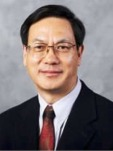
Zhong Lin Wang is the Hightower Chair in Materials Science and Engineering and Regents’Professor at Georgia Tech., as well as the chief scientist and director of the Beijing Institute of Nanoenergy and Nanosystems, Chinese Academy of Sciences. His discoveries and breakthroughs in the development of nanogenerators and self-powered nanosystems have established fundamental principles and technological roadmaps for harvesting mechanical energy from environmental and biological systems, thereby powering personal electronics and future sensor networks. He coined and pioneered the field of piezotronics and piezophototronics, and established the disciplines of piezoelectronics, piezo-phototronics, and triboelectronics. He extended the application of Maxwell’s equations to moving charged media, laid the theoretical foundation for nanogenerators, and unified the physical model of triboelectricity. He has co-authored approximately 2,620 scientific papers published in peer-reviewed international journals.
ORCID: https://orcid.org/0000-0002-5530-0380
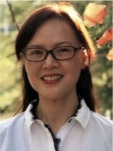
Chenguo Hu is a full professor at Chongqing University and director of the Key Lab of Materials Physics of Chongqing Municipality. She received her Ph.D. from Chongqing University in 2003. From February 2005 to February 2006, she served as a Visiting Professor at the Center for Nanoscale Science and Technology, Georgia Institute of Technology, USA. Her research primarily focuses on surface and interface physics, as well as the design and application of related functional devices. She has made numerous innovative contributions, particularly in the areas of triboelectric nanogenerators and self-powered sensors. Her research interests include investigating the morphology- and size-dependent physical and chemical properties of nanomaterials, and designing and fabricating electronic devices such as nanogenerators and self-powered sensors. She has co-authored approximately 336 scientific papers published in peer-reviewed international journals.
ORCID: https://orcid.org/0000-0002-3019-493X
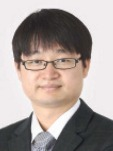
Jeong Min Baik is a full professor in the School of Advanced Materials Science and Engineering at Sungkyunkwan University (SKKU). He received his Ph.D. from the Department of Materials Science and Engineering at Pohang University in 2006. His recent research interests focused on synthesizing nanomaterials and nanostructures, such as nanoparticles, nanowires, nanolayers, and nanopores, for applications in energy-conversion devices and nano-photonic devices. His particular interests include the development of piezoelectric/triboelectric nanogenerators and artificial photosynthesis. By tailoring nanoscale architectures, Professor Baik’s research bridges fundamental material properties with scalable device applications, driving innovations in renewable energy and photonics. He has co-authored approximately 209 scientific papers published in peer-reviewed international journals.
ORCID: https://orcid.org/0000-0002-8113-6860
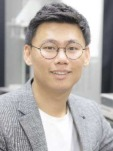
Ju-Hyuck Lee is an Associate Professor in the Department of Energy Science and Engineering at Daegu Gyeongbuk Institute of Science and Technology (DGIST). Dr. Lee received his Ph.D. in Nanoscience and Engineering from Sungkyunkwan University (SKKU) in 2016. Dr. Lee’s recent research focuses on designing and developing advanced functional materials—including engineered polymers, ceramic composites, and hybrid nanostructures—specifically tailored for high-efficiency piezoelectric/triboelectric nanogenerators (PENGs/TENGs) and intelligent self-powered sensors. His work bridges sustainable energy harvesting with intelligent sensing systems, developing autonomous devices capable of real-time environmental monitoring, healthcare diagnostics, and IoT applications without external power sources. He has co-authored approximately 60 scientific papers published in peer-reviewed international journals.
ORCID: https://orcid.org/0000-0001-5383-5894
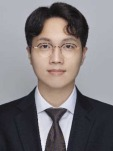
Hong-Joon Yoon is an Assistant Professor in the Department of Electronic Engineering at Gachon University, Republic of Korea. He received his Ph.D degree from the School of Advanced Materials Science and Engineering, Sungkyunkwan University (SKKU) in 2018. From 2018 to 2022, he served as a Postdoctoral Researcher at the Institute of Advanced Materials, Sungkyunkwan University (SKKU), and the Center for Bio-Integrated Electronics (CBIE), Northwestern University. Dr. Yoon’s current research interests include designing and developing piezoelectric, triboelectric nanogenerators for wearable and implantable applications, as well as bioresorbable materials-based 3D sensors and devices. His groundbreaking innovations in triboelectric/piezoelectric material fabrication and their applications in energy harvesting and bio-integrated systems have earned significant international recognition. He has co-authored approximately 55 scientific papers published in peer-reviewed international journals.
ORCID: https://orcid.org/0000-0002-5668-3192
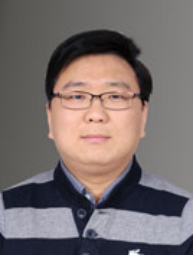
Ya Yang is a full professor at the Beijing Institute of Nanoenergy and Nanosystems, Chinese Academy of Sciences, China. He received his Ph.D. in Materials Science and Engineering from the University of Science and Technology Beijing, China. He has developed various new hybridized and multi-effects coupled devices, introducing new principles of device design and coupled effects, as well as new approaches to improving the output performance of energy-related devices. His research interests primarily focus on hybridized and coupled devices for energy conversion, self-powered sensing, and exploring new physical effects. He has made significant progress in designing and integrating novel composite and hybrid nanogenerators, self-powered multifunctional sensors based on composite and hybrid nanogenerators, and flexible large-scale sensing arrays. He has co-authored approximately 300 scientific papers published in peer-reviewed international journals.

